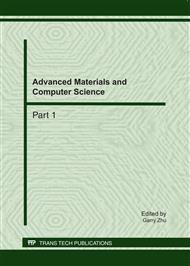p.1808
p.1813
p.1819
p.1825
p.1830
p.1836
p.1840
p.1849
p.1855
A Scalable Heuristic Based on Hypercube Graph for Automated Planner
Abstract:
There are much research into Artificial Intelligence (AI) and Semantic Web over the past few years and intelligent behaviour such as learning, analysing, problem solving, planning and abstracting is displayed by modern computer systems. Automatically acquiring domain-knowledge for planning, as it is the case for Machine Learning in general, strongly depends on the training material. In planning, there is a novel ways to search knowledge when solving problems. This Paper presents a new heuristic for carrying out searches of training material, where metadata and the knowledge build into them are captured and fully scalable. These insfrastructure use AI Planning and Ontology technologies, allowing to construct learning rules dynamically based on the general Domain independent Planner even from disjoint learning objects, and meeting the learner’s profile, preferences needs and abilitity. We provide an efficient topology construction and maintenance algorithm, and show how our scheme can be made even more efficient by using a globally known ontology to determine the organization of nodes in the graph topology, allowing for efficient concept-based search.
Info:
Periodical:
Pages:
1830-1835
Citation:
Online since:
April 2011
Authors:
Keywords:
Price:
Сopyright:
© 2011 Trans Tech Publications Ltd. All Rights Reserved
Share:
Citation:


